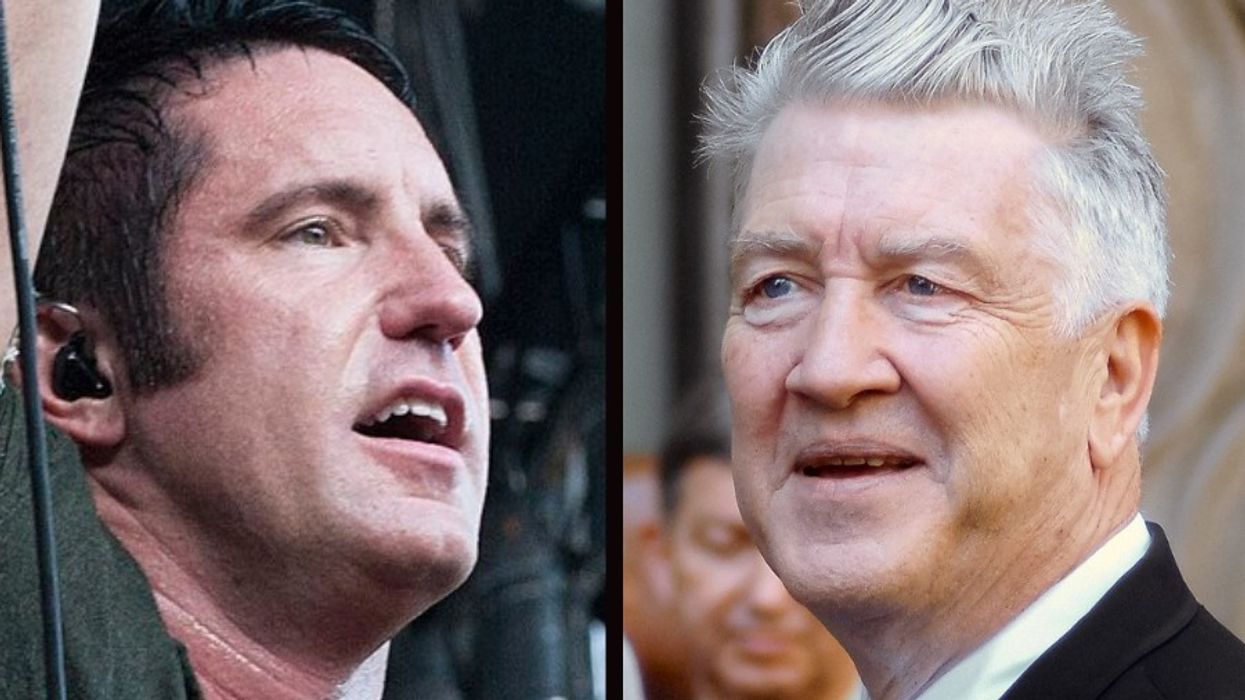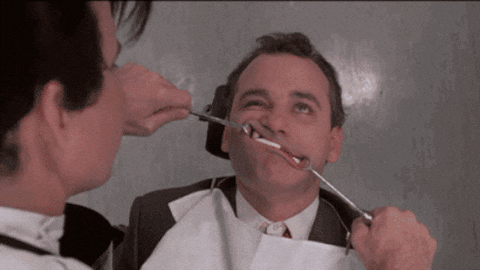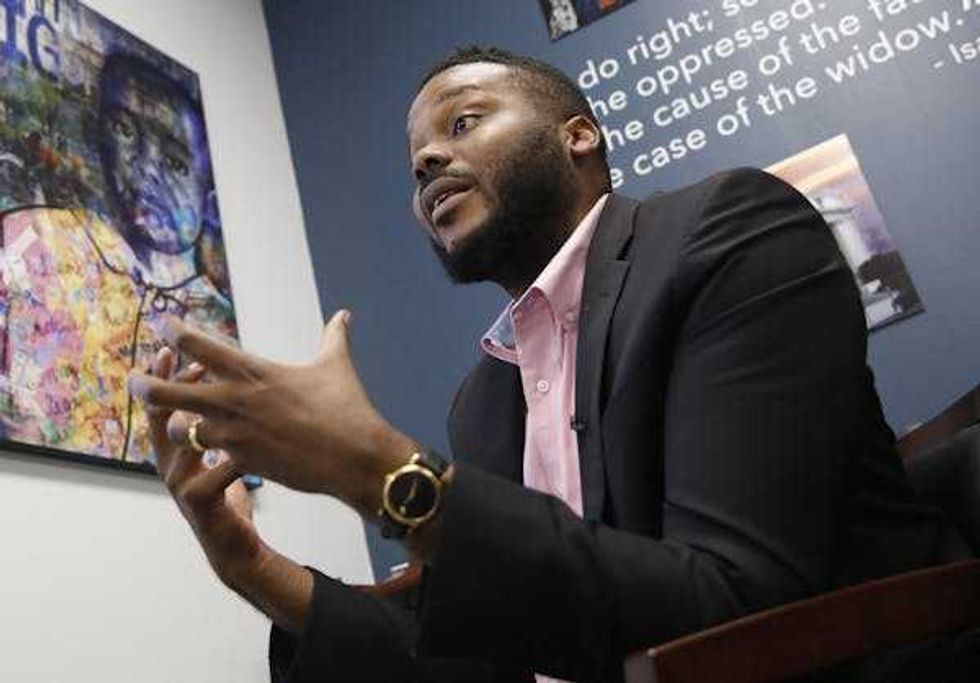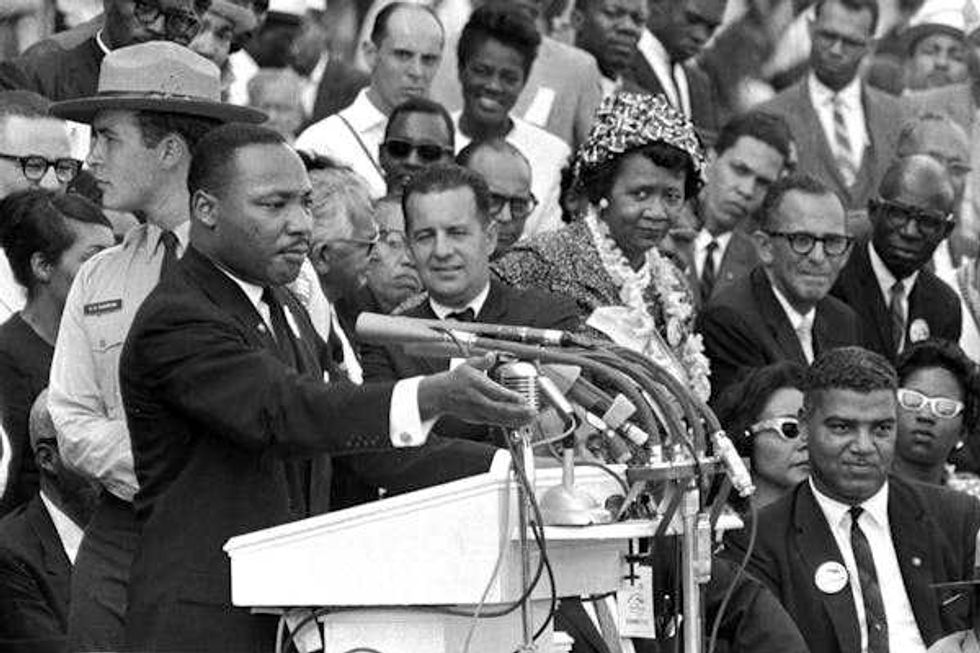Few pairings of filmmaker and musician are more ideal than David Lynch and Nine Inch Nails’ Trent Reznor. Though their work is far-reaching and tough to pigeonhole, at the core they share a dark and surreal aesthetic—and they clearly established a feedback loop of inspiration, collaborating in various settings over the years. It’s the kind of inspiring artistic friendship that seems almost too perfect to be true.
But it was, and it all began in the late '90s, when Reznor’s management called with a bucket-list request: Lynch wanted him to work on his upcoming film, the mind-bending Neo-noir Lost Highway. Reznor was already a massive fan—as the musician told horror-film magazine Fangoria, Lynch was a personal "hero" and a kind of "mythical creature," with the director’s 1986 masterpiece Blue Velvet crucial in the "alternate trajectory of [his] life and certainly [his] artistic life." The partnership was fruitful: Reznor wrote two new songs for the film ("Driver Down" and the minor Nine Inch Nails hit "The Perfect Drug"), helped create music for a pivotal scene, and even produced the official soundtrack.
- YouTube www.youtube.com
And it was probably the perfect omen that their first meeting felt like a nightmarish scene that could have come from Twin Peaks or Eraserhead. At the time, the Nine Inch Nails leader was living in New Orleans, and he invited Lynch to visit for a few days and "work on some sounds." When Lynch arrived, it was a foggy night at Reznor’s studio, located in a residential area uptown. "I guess he was driven and dropped off, because he suddenly emerges from the fog and—at that exact moment, from down a side street—two completely naked dudes also come walking out of the fog," he told Fangoria with a laugh. "It wasn't planned, just one of those random New Orleans experiences. I'll never forget the look on [Lynch's] face, like, “What the fuck is going on here?”
Reznor and Lynch exuded the same detached, mysterious sense of cool—likely the reason Rolling Stone decided to put both artists on a shared magazine cover back in 1997. "I’m a huge David Lynch fan—we used to hold up Nine Inch Nails shows just so we could watch the latest Twin Peaks,” Reznor told the publication. "So we set up a weekend for him to come to my place in New Orleans. At first, it was like the most high-pressure situation ever. It was literally one minute, ‘Hi, I’m David Lynch,’ and he’s cooler than I even imagined he would be. Three minutes later, he’s saying: ‘Well, let’s go in the studio and get started.’"
- YouTube www.youtube.com
But Reznor’s Lynch fandom isn’t just a fun factoid—it actually informed his music, particularly Nine Inch Nails’ meticulously crafted sound design. "I was very much inspired by the films of David Lynch—not so much what the music was doing but what the sound was doing," he recalled in a 2020 episode of Netflix series Song Exploder focused on 1994’s "Hurt." "There’s a radiator [in Eraserhead], and I feel like I’m going crazy. Why is that? Oh, 'cause that humming sound in the room is super loud. It could miraculously make you feel incredibly uncomfortable. It’s not all meant to just repulse you—but to be able to emotionally set the stage for what I was trying to get across. So we started laying in subliminal sounds throughout the whole record."
That influence led to further collaborations: Lynch directed Nine Inch Nails’ beautifully disorienting video for 2013’s "Came Back Haunted," and Reznor’s band appeared in the iconic eighth episode of 2017's Twin Peaks: The Return, playing "She’s Gone Away"—a song written specifically for the show.
- YouTube www.youtube.com


















 A car with LED headlightsCanva
A car with LED headlightsCanva

 A collection of toilet paper rollsCanva
A collection of toilet paper rollsCanva A bidet next to a toiletCanva
A bidet next to a toiletCanva A cute pig looks at the cameraCanva
A cute pig looks at the cameraCanva A gif of Bill Murray at the dentist via
A gif of Bill Murray at the dentist via  A woman scrolls on her phoneCanva
A woman scrolls on her phoneCanva
 A confident woman gives a speech in front of a large crowdCanva
A confident woman gives a speech in front of a large crowdCanva

 Creativity and innovation are both likely to become increasingly important for young people entering the workplace, especially as AI continues to grow.
Creativity and innovation are both likely to become increasingly important for young people entering the workplace, especially as AI continues to grow.
 As mayor of Stockton, Calif., Michael Tubbs ran a pioneering program that provided a basic income to a limited number of residents.
As mayor of Stockton, Calif., Michael Tubbs ran a pioneering program that provided a basic income to a limited number of residents. Martin Luther King Jr. believed Americans of different racial backgrounds could coalesce around shared economic interests.
Martin Luther King Jr. believed Americans of different racial backgrounds could coalesce around shared economic interests.
 Confident young womanCanva
Confident young womanCanva